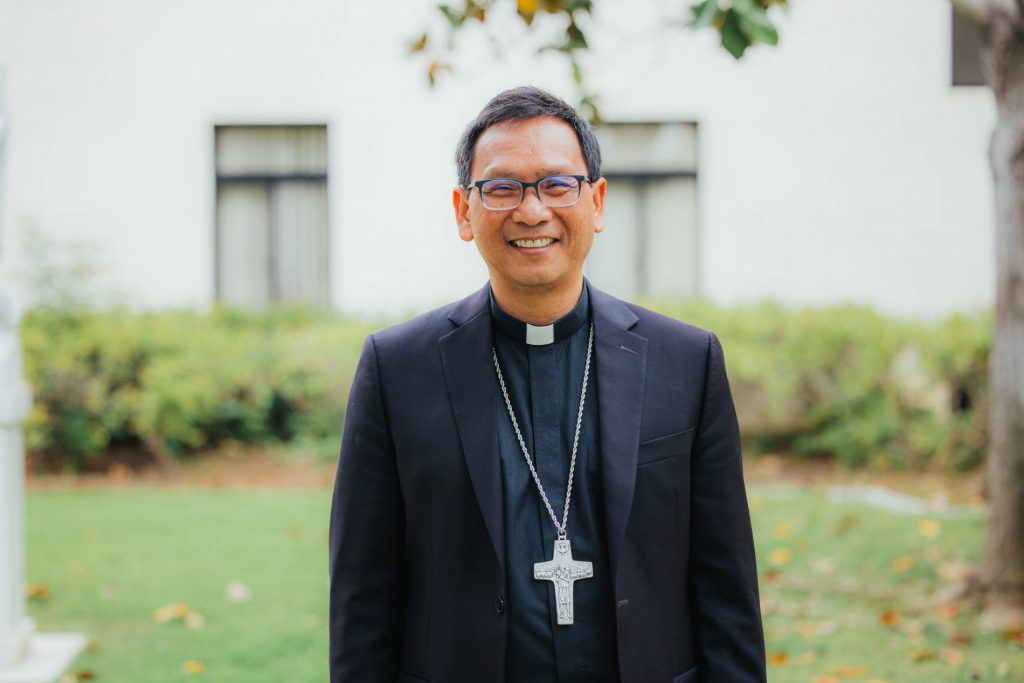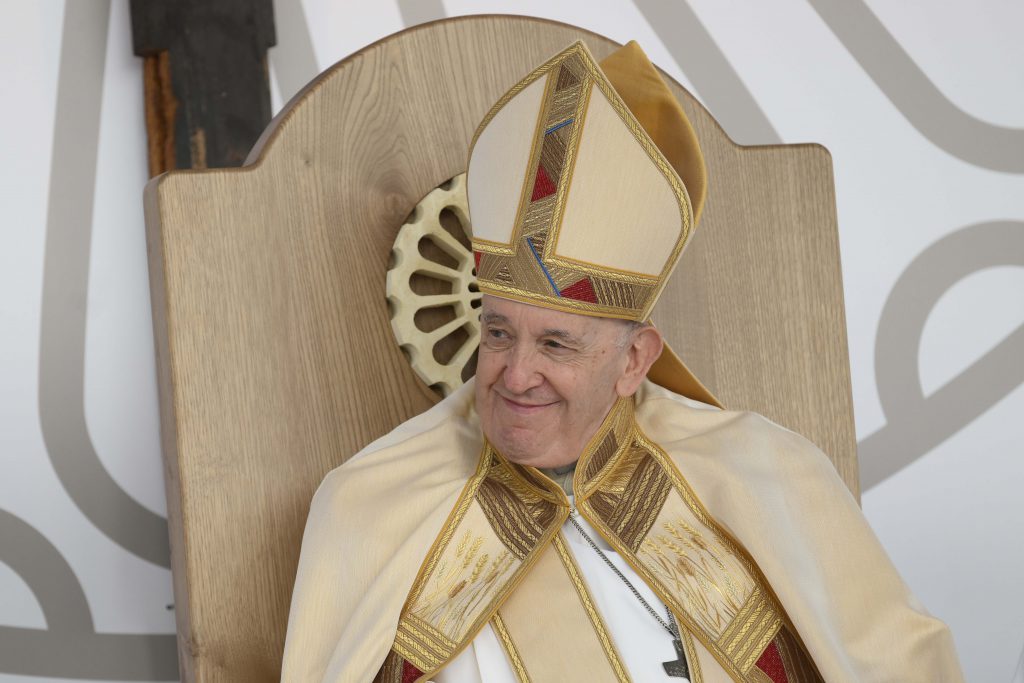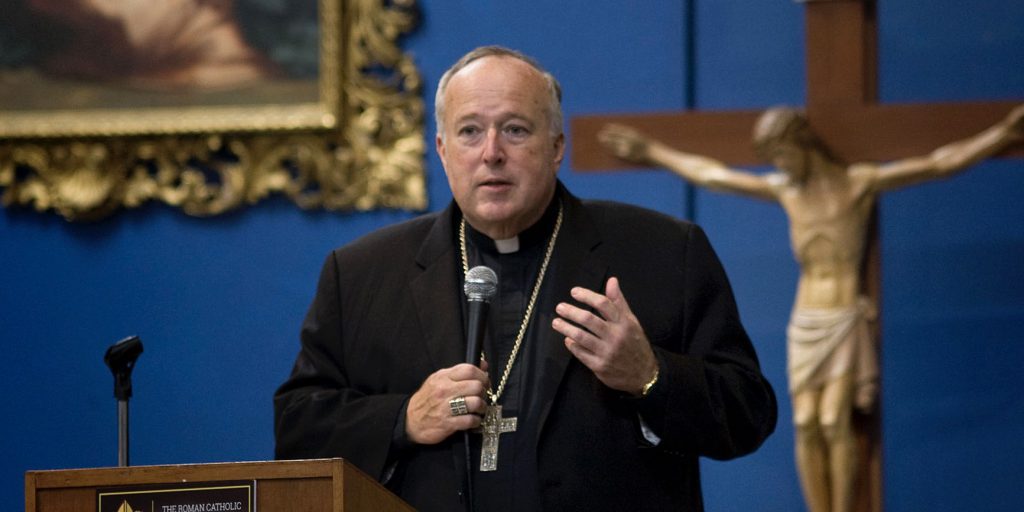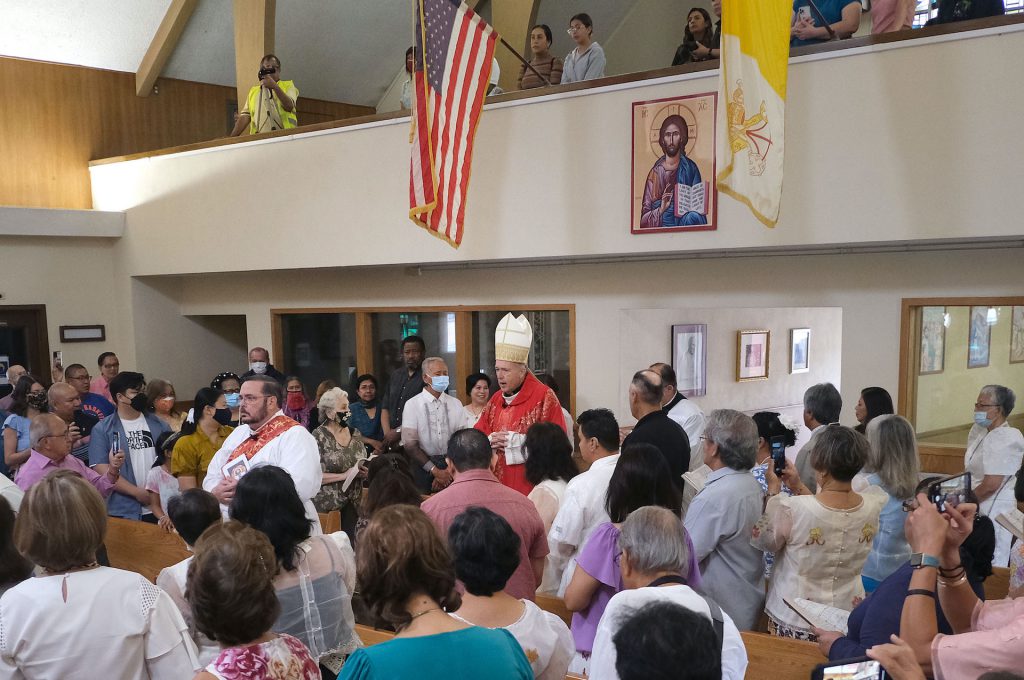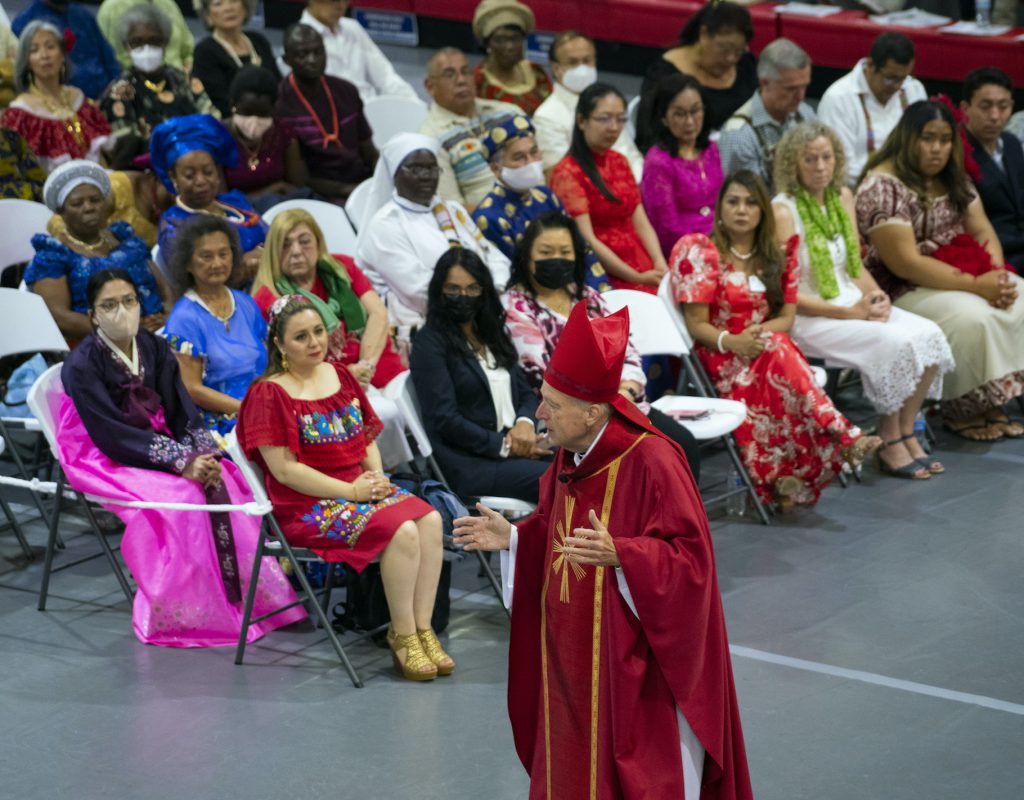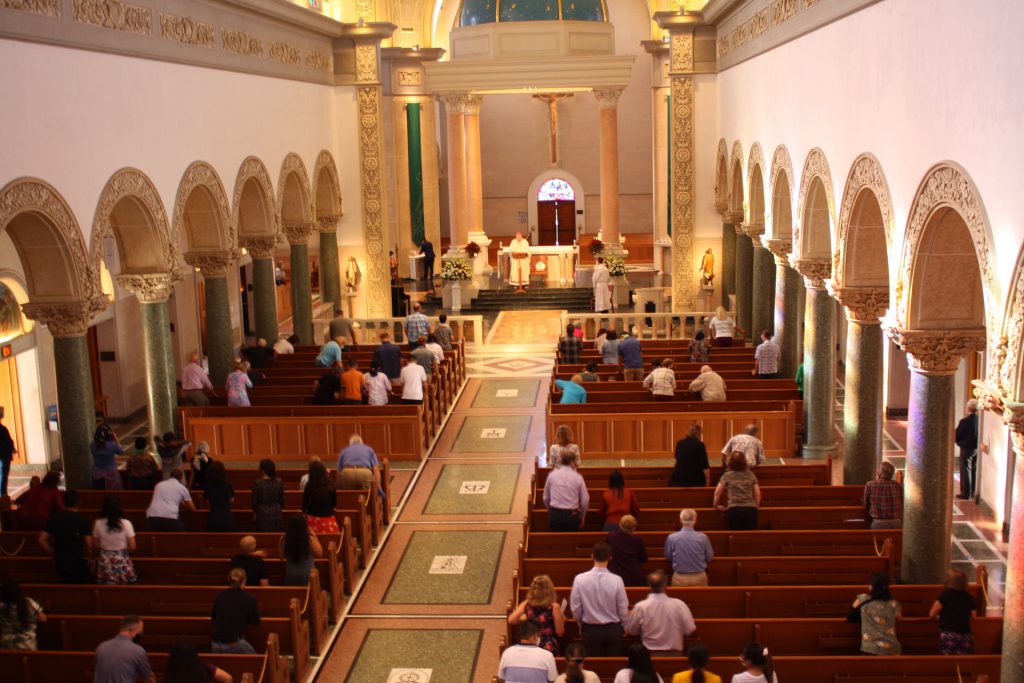SAN DIEGO — Bishop Robert W. McElroy celebrated a Mass for Racial Healing, for and with the Asian and Pacific Islander community, on the evening of April 15 at Good Shepherd Parish, accompanied by Auxiliary Bishop John Dolan and more than a dozen priests.
At the beginning of the Homily, Vicar General Father Michael Pham, the parish’s pastor, cited passages from the Matthew 27:32-37, followed by Bishop McElroy’s message. The text of the Homily follows:
“As they were going out they met a man from Cyrene named Simon, and they forced him to carry the cross. They came to a place called Golgotha, which means the place of the skull. There, they offered Jesus wine to drink, mixed with gall; but after tasting it, he refused to drink it. When they had crucified him, they divided his clothes by casting lots. And sitting down, they kept watch over him there. Above his head, they placed the written charge against him: This is Jesus, the King of the Jews.”
The Chinese Exclusion Act, passed in 1882, prohibited the immigration of all Chinese laborers into the United States. It was and remains the only law to have been implemented to prevent all members of a specific ethnic or national group from immigrating to the United States. In its wake, anti-Chinese Americans physically forced Chinese communities to flee to other areas.
“Two rebels were crucified with him, one on his right and one on his left. Those who passed by hurled insults at him, shaking their heads.”
In the l930’s animosity toward Filipinos in California led to a vicious vigilante movement designed to fight what they termed the “Third Asiatic Invasion.” When riots broke out in Watsonville in l931, Filipino residents were dragged from their homes, severely beaten, and left for dead. Violence spread throughout California, bringing terror to the entire Filipino population
“From noon until three in the afternoon, darkness came over all the land. About three in the afternoon Jesus cried out in a loud voice: “Eli, Eli, lema sabachthani!,” which means “My God My God, why have you forsaken me…”
In 1942 more than 100,000 Japanese and Japanese-American residents of California were forced to leave their homes, jobs and communities and move to government-run internment camps in the interior of the United States. For almost four years they led a life of regimentation and little freedom, and while fear of Japanese spying was the pretext for this massive upheaval of lives and families, racial animosity was the genuine reason for internment.
“And when Jesus cried out again in a loud voice, Jesus surrendered his spirit.”
The motivation which led Patrick Purdy to Stockton’s Cleveland Elementary School in l989 was simple: an abiding hatred of Southeast Asians. Armed with that hatred and a gun, he killed five children and wounded 32 others. The victims were overwhelmingly from Vietnam and other countries of Southeast Asia.
We gather here tonight because there is hatred in our world – the hatred which launched the Chinese Exclusion Act, the hatred which forced the Japanese community into relocation camps, the hatred that terrorized the Filipino communities of the Central Valley, the hatred that killed small children in their classroom because they were Southeast Asian. For the Korean communities attacked during the Los Angeles riots and for the Pacific Islanders that have had to battle stereotypes and discrimination, we cannot gather authentically in prayer without recognizing that alongside the richness of the Asian tapestry which frames our culture in California, is a history of Anti-Asian racism, a history that still thrives subtly and overtly, viciously and violently.
The very reality and meaning of the crucifixion calls us to see this exclusion and violence, recognizing in the racist patterns of our society the false condemnation of Pilate, the insults of the crowd, the sense of desolation that Jesus experienced as he hung on the cross. And we, as individuals, must in shame recognize those moments when we have contributed to the terrible legacy of racism in our world by joining the crowd shouting insults, by remaining silent in the face of racial injustice, and by nailing Christ to the cross in the form of his sisters and brothers.
We gather here tonight because there is hatred in our world. But more importantly we gather here tonight because Jesus’ sacrifice on the cross shows us a pathway of radical love and sacrifice that is the only lasting antidote to the racism that lurks within the human heart.
In his recent encyclical “Fratelli Tutti,” Pope Francis calls for a love within the human family that transcends all boundaries, all divisions, all exclusions. It is the love of the good Samaritan, who confronting evil and danger on the road, breaks every racist cultural boundary that calls him to limit his love to his own Samaritan community.
The love of the good Samaritan destroys racism by casting aside that mysterious cancer of the human soul that leads us to label God’s children as “other,” as inferior, as unworthy, as threat, as competitor. And in casting aside that terrible impulse of the human spirit, God opens up the truth that we are all equal in the sight of God. There are no children of a lesser god in this world, and we must begin to rebuild our state and our nation to foster genuine unity and peace.
One month ago, in the wake of the slaughter in Atlanta, I asked all of the parishes of our diocese to pray for the Asian American and Pacific Islander communities in San Diego and Imperial Counties.
Tonight, I ask again, conscious of the tears that our AAPI communities have wept, their dreams that have been shattered, the fear that they have carried, and the caricatures that have mocked and wounded them because of hateful prejudice against the Asian American and Pacific Islander communities.
It is the story of the crucifixion that encapsulates the magnitude of evil in our world. But it is the crucifixion that also conveys even more piercingly the hope we hold, the faith we share, and the love that unites us in Jesus Christ who suffered all to show there are no limits to His love.




